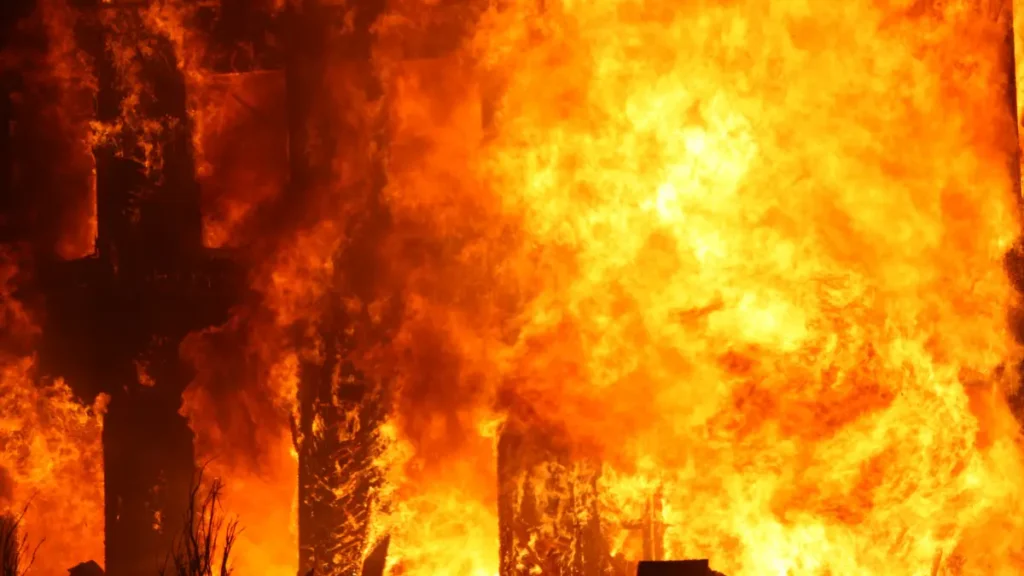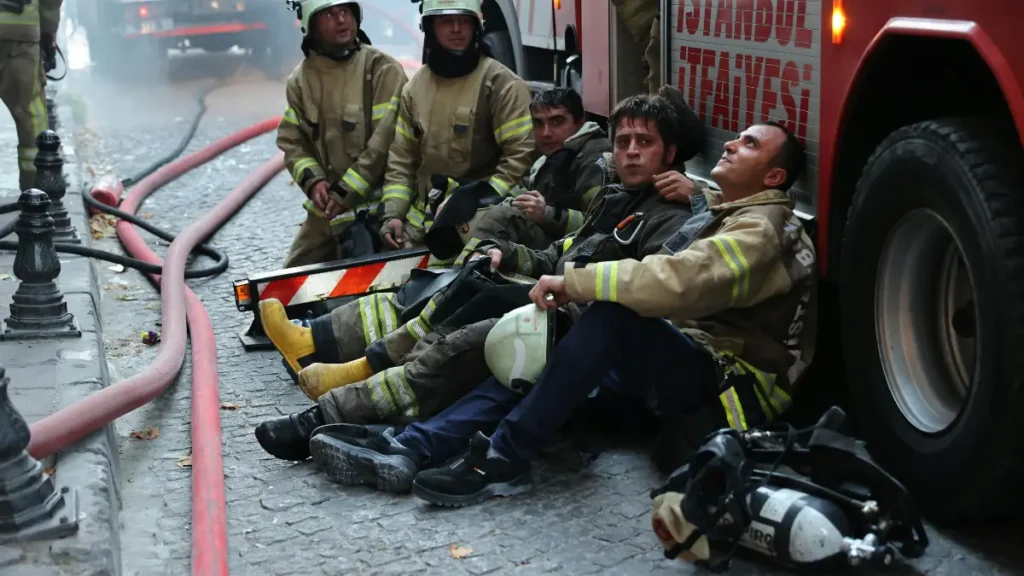Family Displaced After New Mexico Mobile Home Fire
I still remember reading about a family in Anthony, New Mexico, whose world was turned upside down before sunrise on Saturday. Around 5 a.m., a mobile home on Warthen Road caught fire, and by the time the first fire engine arrived, the house was fully engulfed. Imagine waking up to the smell of smoke and the roar of flames—fortunately, the family of four had already managed to evacuate safely.
Even though the fire was contained within about 30 minutes, the damage was devastating. The home was rendered uninhabitable, and most of their belongings were destroyed. One family member was treated for smoke inhalation at the hospital, while the others received care on the scene. It’s the kind of loss that hits hard—not just physically, but emotionally, too.
The American Red Cross has stepped in to assist the displaced family, offering temporary relief and support. Fire investigators have labeled the incident accidental, though the exact cause is still under investigation. Reading this, I couldn’t help but think about how quickly life can change and how crucial it is to be prepared, especially if you live in a mobile home.
Immediate Consequences for the Family

When a fire tears through your home, it’s not just the walls or furniture that vanish—it’s your sense of security, your memories, your comfort. For the Anthony family, the damage was total. Most of their belongings were destroyed, leaving them with almost nothing.
The American Red Cross quickly stepped in to provide assistance, helping with temporary shelter, clothing, and essentials. Even small gestures, like a warm blanket or a hot meal, can mean the world when everything else is gone.
Reading this, I kept thinking about how vulnerable families can be when disaster strikes and how vital community support really is.
It’s easy to assume “it won’t happen to me,” but the truth is, it can—and having a plan, even a simple one, can make a big difference when minutes matter.
I was reminded of a similar situation in New York where firefighters were injured and pets were lost in a devastating blaze—stories like that show how deeply these incidents affect families and responders alike.
Key takeaway: Make sure you know where your local emergency relief organizations are and keep an updated list of contacts. In a disaster, help should arrive fast, but preparation helps you survive the moments before help comes.
Understanding Mobile Home Fire Risks
I’ve spent years looking at residential fires, and one thing is clear: mobile homes face unique challenges. Unlike traditional houses, they’re often built with lighter materials, older wiring, and layouts that can let a fire spread faster.
In many cases, smoke detectors are missing or outdated. That small detail can turn a minor fire into a disaster in minutes. In fact, studies show that mobile homes have a higher fire mortality rate than standard houses, simply because these factors combine to give families less time to react.
For anyone living in a mobile home, it’s worth asking yourself: “Are my smoke detectors working? Do I know all my exit routes? Do I have a fire plan ready?” Small steps like these could save your life.
We’ve seen heartbreaking cases—like the Delaware County fire where a 3-year-old boy didn’t survive—reminding us how quickly a small spark can become life-threatening.
Key takeaway: Awareness is your first line of defense. Understanding your home’s vulnerabilities allows you to act before a fire escalates.
Causes & Investigation Insights
KFOX14 reports that fire investigators have labeled the Anthony blaze accidental, though the exact cause is still under review. While we don’t yet know what sparked it, mobile home fires often start with cooking mishaps, heating equipment, or electrical issues.
What struck me is how quickly an accident can turn into a life-changing event. A moment of distraction, a faulty wire, or an unattended heater can destroy a home in minutes. That’s why it’s essential to identify and manage risks proactively.
Practical takeaway: Inspect your home regularly. Make sure wiring is up to date, space heaters have room to breathe, and cooking areas are never left unattended. Prevention isn’t just theory—it’s your best chance of avoiding what happened in Anthony.
Fire Containment & Emergency Response

The fire in Anthony was contained in roughly 30 minutes, which speaks volumes about the efficiency of the local fire department. They arrived to a fully engulfed mobile home, yet their rapid response prevented the fire from spreading to neighboring properties.
Watching crews work under such intense conditions, I couldn’t help but admire their training and dedication. Fires like these are unpredictable, and every second counts. For residents, knowing that first responders are competent is reassuring—but relying solely on them isn’t enough.
Practical takeaway: Pair community trust with personal preparedness. Know your fire escape routes, keep exits clear, and have an emergency kit ready. Minutes before firefighters arrive are minutes where your preparation matters most.
Prevention & Safety Tips for Mobile Home Residents
Here’s where I want you to pause and think about your own home. Fires like Anthony’s don’t happen often, but when they do, they can be devastating.
Start with smoke detectors. Check them monthly and replace batteries regularly. Map out clear exit paths for everyone in the household, including children or elderly family members. Regularly inspect electrical wiring and heating devices—especially if your home is older.
A few simple habits can make all the difference: never leave cooking unattended, keep flammable objects away from heaters, and consider fire-resistant materials where possible.
If you like quick safety updates, many people follow WhatsApp channels that share real-time alerts and simple home-safety reminders—it’s an easy way to stay prepared without overthinking it.
Practical takeaway: Preparedness isn’t complicated, but it is essential. Small steps today can prevent your family from facing the same displacement that the Anthony family endured.
Community Support & Recovery Resources
When your home burns down, the loss isn’t just physical—it’s emotional and social too. That’s why community support matters so much. For the family in Anthony, organizations like the American Red Cross provided immediate relief, helping with shelter, clothing, and essentials.
But you don’t have to wait for a disaster to know where help exists. Every mobile home resident should familiarize themselves with local emergency contacts, fire department outreach programs, and community centers that offer disaster support. Knowing who to call and what resources are available can make a huge difference if the unthinkable happens.
Practical takeaway: Make a list of local relief agencies and keep it somewhere accessible. Being connected to your community could help you recover faster if disaster strikes.
Broader Context — Mobile Home Fires in New Mexico
Reading about the Anthony fire, I couldn’t help but think about the bigger picture. Mobile homes are inherently more vulnerable to fires than traditional houses. In New Mexico, incidents like these, while not daily, occur often enough to be concerning.
Many mobile homes are older, lack modern safety features, and are located in rural areas where response times may be longer. On a national level, studies show that mobile home fires result in a disproportionate number of deaths compared to traditional homes, largely due to structural and safety limitations.
By understanding these patterns, you start seeing why preparation and awareness are critical—not just for your family, but for everyone living in mobile homes in similar conditions.
Just recently, a Halifax County home was completely destroyed in another tragic fire—cases like that underline how common and severe these incidents can be.
Practical takeaway: Don’t treat fire safety as optional. Knowing the risks specific to mobile homes helps you prioritize prevention, preparedness, and quick action.
Key Takeaways & Lessons for Readers
Here’s the reality I want you to take away: disasters like the Anthony fire can happen to anyone. Even when evacuation is successful, the emotional and material loss can be overwhelming.
Living in a mobile home means acknowledging unique vulnerabilities—but it also means you have the power to mitigate risks. Simple steps like testing smoke alarms, creating escape plans, and maintaining appliances aren’t just tips—they’re lifesaving habits.
Remember, community and emergency support are invaluable, but your preparation is your first defense. Take a moment today to ask yourself: Am I ready if a fire broke out in my home right now?
Share this article with friends or family who live in mobile homes. Talk about fire safety together. The more aware we are, the safer our communities become.
If you want more real-world breakdowns of home fire incidents and safety insights, explore more stories on our website—there’s a lot you’ll find useful.
Disclaimer: This article is for informational purposes only and should not be taken as legal, safety, or professional advice. Always consult certified fire safety professionals or local authorities for guidance specific to your situation. The information provided is based on publicly available reports and may not reflect the full details of the incident.


